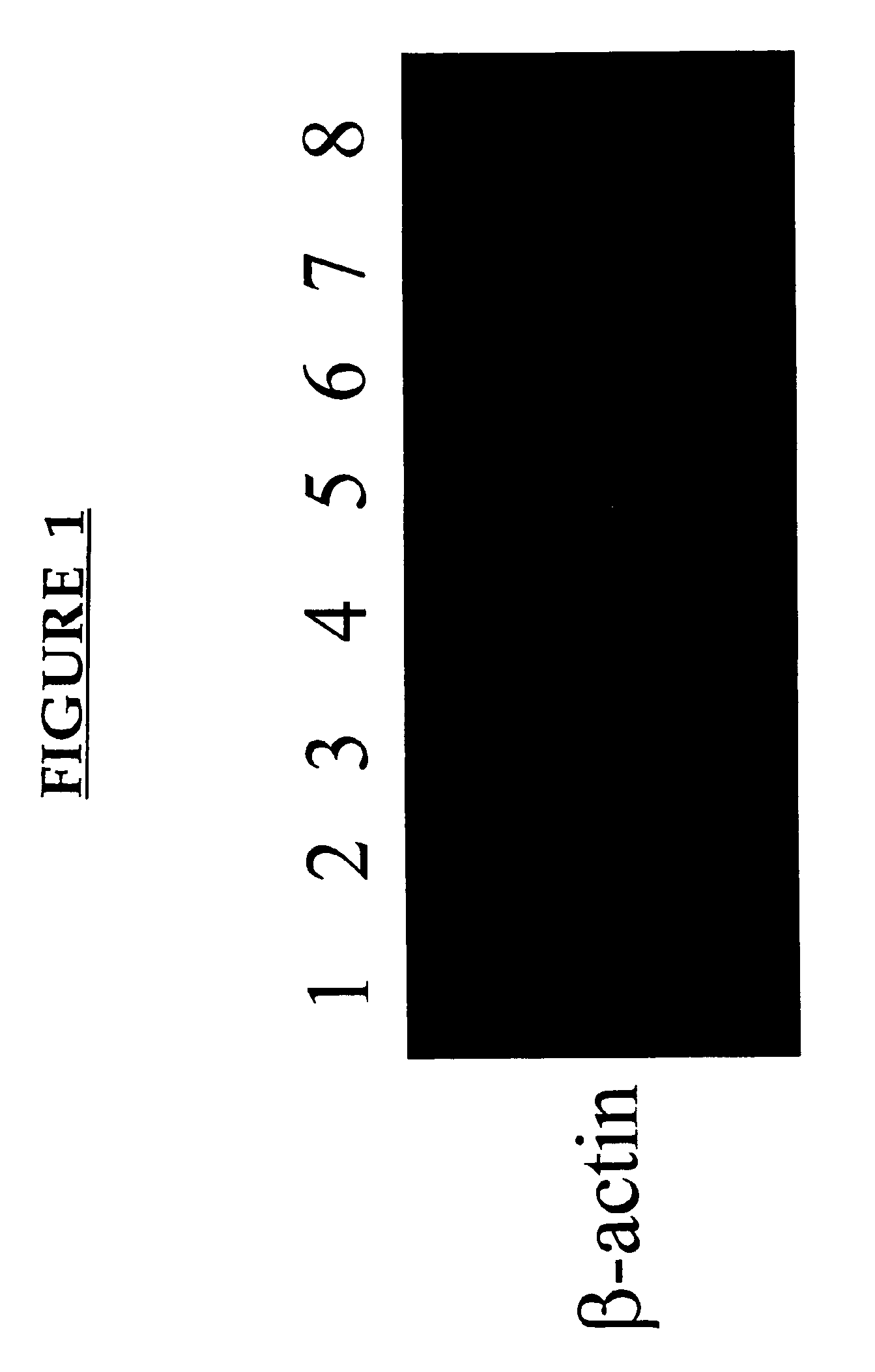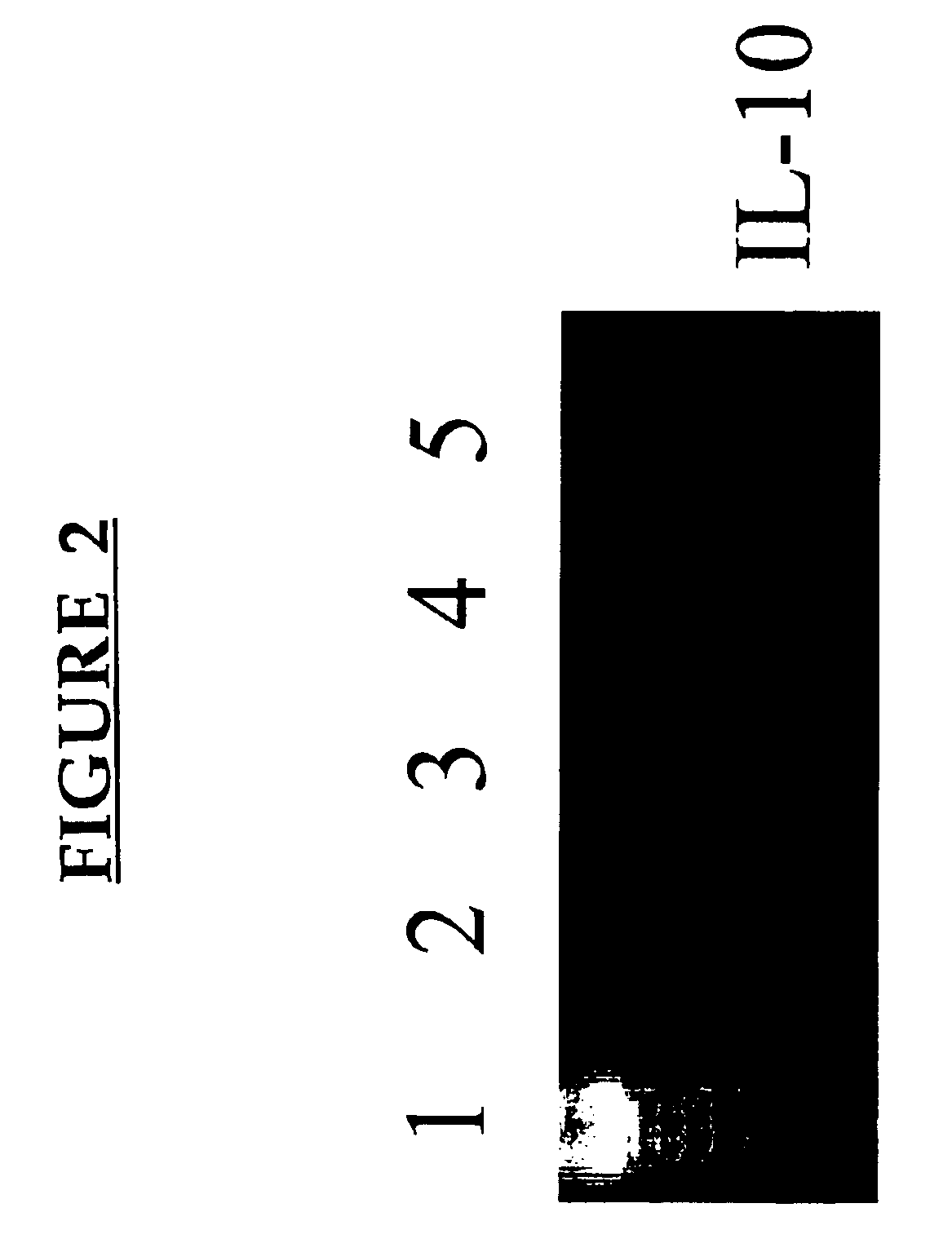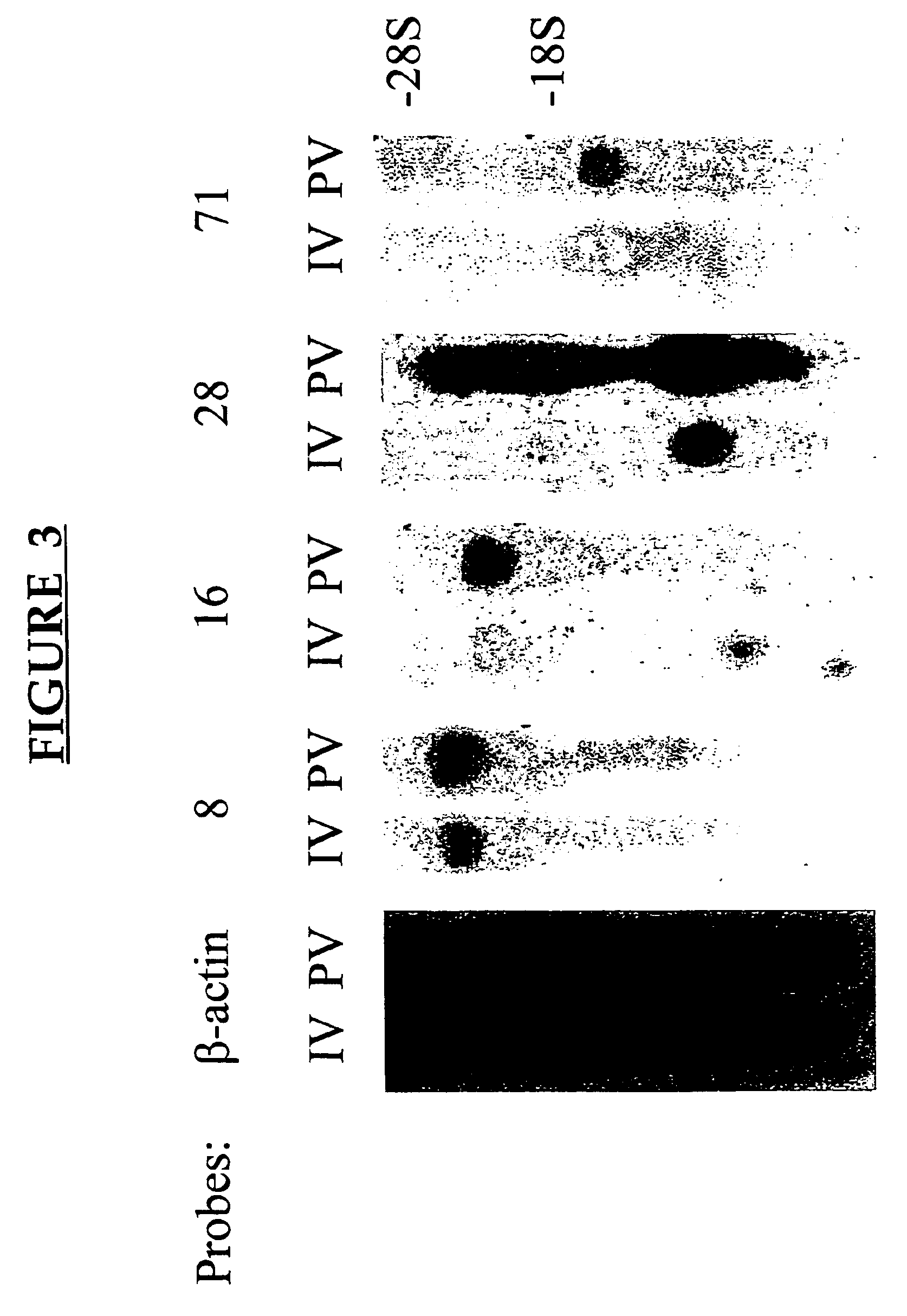Methods of inhibiting immune response suppression by administering antibodies to OX-2
a technology of immune response and antibody, applied in the direction of antibody medical ingredients, peptide/protein ingredients, peptide sources, etc., can solve the problems of decreased renal function, non-specific immunosuppression generally has undesirable side effects, and the immune system can be the cause of illness, so as to inhibit the survival of grafts, increase expression, and reduce the effect of fetal loss ra
- Summary
- Abstract
- Description
- Claims
- Application Information
AI Technical Summary
Benefits of technology
Problems solved by technology
Method used
Image
Examples
example 1
[0156]This example demonstrates the increased expression of certain genes following pv immunization.
Mice:
[0157]C3H / HeJ and C57BL / 6 mice were purchased from The Jackson Laboratory, Bar Harbor, Me. Mice were housed five / cage and allowed food and water ad libitum. All mice were used at 8-12 weeks of age.
Monoclonal Antibodies:
[0158]The following monoclonal antibodies (Mabs) from Pharmingen (San Diego, Calif.) were used: anti-IL-2 (JES6-1A12; biotinylated JES6-5H4); anti-IL-4 (11B 11; biotinylated BVD6-24G2); anti-IFNγ (R4-6A2; biotinylated XMG1.2); anti-IL-10 (JES5-2A5; biotinylated SXC-1, Pharmingen, San Diego, Calif.); mouse IgG1 isotype control (clone 107.3, BALB / c anti-TNP). Strepavidin horse radish peroxidase and recombinant mouse GM-CSF was also purchased from Pharmingen (San Diego, Calif.).
[0159]NLDC-145 (anti-mouse dendritic cells), and F(ab′)2 rabbit anti-rat IgG FITC conjugate (non-cross reactive with mouse IgG), or F(ab′)2 rabbit anti-mouse IgG PE was obtained from Serotec, C...
example 2
Murine OX-2
This example describes the cloning and sequencing of murine MRC OX-2.
[0199]A cDNA library was constructed from MLN cells derived from adult C3H mice, preimmunized 5 days earlier with 10×106 allogeneic B10.BR bone marrow-derived dendritic cells allogeneic cells by the portal venous (pv) route, using a Cap Finder PCR cDNA library construction kit (Clontech). The inventor had previously isolated, using a PCR-Select CDNA subtraction hybridization kit (Clontech) and RNAs obtained from pooled MLN of mice immunized by the pv route or via the lateral tail vein (iv), a 350 bp amplicon which showed over 98% homology with the 3′ untranslated region of rat MRC OX-2 cDNA. Northern blot analysis confirmed that this amplicon detected a differentially expressed product in RNAs prepared from iv vs pv immunized mice. This amplicon was used to screen 5×105 clones of the amplified library. The sequences of cDNA clones were established with an Applied Biosystems 377 Automated Sequencer, utili...
example 3
OX-2 Positive Cells Inhibit Type-1 Cytokine Production
[0203]The inventor has shown that hepatic mononuclear, non-parenchymal, cells (NPC) can inhibit the immune response seen when allogeneic C57BL / 6 dendritic cells (DC) are incubated with C3H spleen responder cells. Cells derived from these cultures transfer increased survival of C57BL / 6 renal allografts in C3H mice. The inventor also found that increased expression of OX-2 on dendritic cells was associated with inhibition of cytokine production and renal allograft rejection. The inventor further explored whether inhibition by hepatic NPC was a function of OX-2 expression by these cells.
[0204]Fresh C57BL / 6 spleen derived DC were cultured with C3H spleen responder cells and other putative co-regulatory cells. The latter were derived from fresh C3H or C57BL / 6 liver NPC, or from C3H or C57BL / 6 mice treated for 10 days by intravenous infusion of human Flt3 ligand (Flt3L). Different populations of murine bone-marrow derived dendritic cel...
PUM
| Property | Measurement | Unit |
|---|---|---|
| concentration | aaaaa | aaaaa |
| molecular weight | aaaaa | aaaaa |
| molecular weight | aaaaa | aaaaa |
Abstract
Description
Claims
Application Information
 Login to View More
Login to View More - R&D
- Intellectual Property
- Life Sciences
- Materials
- Tech Scout
- Unparalleled Data Quality
- Higher Quality Content
- 60% Fewer Hallucinations
Browse by: Latest US Patents, China's latest patents, Technical Efficacy Thesaurus, Application Domain, Technology Topic, Popular Technical Reports.
© 2025 PatSnap. All rights reserved.Legal|Privacy policy|Modern Slavery Act Transparency Statement|Sitemap|About US| Contact US: help@patsnap.com



